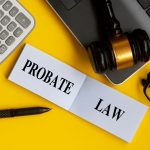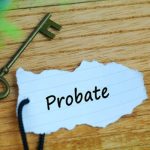Recent Blog Posts

How Can a Florida Premarital Agreement Affect Your Future Probate Estate?
Premarital agreements–prenups–are often associated with divorce. But a prenup can also address what will happen to a couple’s assets when either of them dies during the marriage. That is why it is important to understand the law surrounding premarital agreements here in Florida and how it can affect your future probate estate. What Is… Read More »

Not All Trusts Are Equal: 4 Different Types of Florida Trusts
In broad terms, a trust is a legal arrangement where a grantor transfers certain property to a trustee, who then holds and administers that property for the benefit of a beneficiary. Florida law recognizes many different types of trusts. Each trust has its own unique characteristics, benefits, and potential drawbacks. Here are four of… Read More »

Does the Attorney-Client Relationship Survive the Client’s Death?
In general, when you authorize a person to act on your behalf, that authorization will end if you die. For example, if you sign a power of attorney designating someone to serve as your agent, your death automatically terminates that relationship. Similarly, if a Florida court appoints a person to act as guardian for… Read More »

Does a Probate Estate Have to Pay a Deceased Person’s Criminal Fines?
What happens when a person dies while awaiting a trial on criminal charges? The short answer is that the criminal prosecution effectively dies with them. Even if a defendant has already been tried and found guilty by a jury, if they die while their conviction remains on direct appeal, as a matter of law… Read More »

Dispelling Two Common Myths About Florida Revocable Trusts
Revocable living trusts are often used in Florida estate planning to help individuals pass their property on to family members (or other beneficiaries) outside of the normal probate process. When properly structured and administered, a revocable trust can help secure your family’s financial security even after you are gone. At the same time, revocable… Read More »

When Can You Admit a Lost or Destroyed Will in a Florida Probate Estate?
When a person dies, their will must be located and filed with the probate court. Obviously, this assumes there is a will to find. If the testator–the person who made the will in the first place–destroyed the document before they died, then there is no longer a valid will. The Need for Witnesses As… Read More »

How Do You Tell If an Asset Is Probate or Non-Probate?
An important task in Florida estate administration is distinguishing probate and non-probate assets. An estate consists of a deceased person’s probate assets. Other assets that a person owned, co-owned, or controlled may be classified as non-probate assets. Only probate assets are subject to administration under a person’s will, or in the absence of a… Read More »

How Far Can “Dead Hand Control” Go in a Florida Will?
People often use their will (or trust) to make conditional gifts to their beneficiaries. A common example involves tying a gift or bequest to age. For instance, if you have a child who is still a minor, your trust might include language specifying they will not receive their share until they reach the age… Read More »

How an Alleged Breach of Fiduciary Duty Can Divide a Family Business
Going into business with family members is often fraught with peril. Issues regarding succession are often particularly tricky. Indeed, many family-owned businesses end up struggling–and often outright failing–because of legal disputes that arise when ownership must be transferred from one relative to another. Sisters-in-Law Battle Brother-in-Law in Court A recent decision from the Florida… Read More »

Does a Divorce Affect a Florida Will I Signed Prior to My Marriage?
It is always a good idea to review and revise your estate plan when a major life event occurs. This includes marriage, the birth of a child, or divorce. Of course, Florida law provides for certain situations where a person might inadvertently fail to update their will. For example, there is what is known… Read More »
